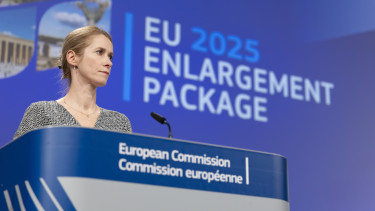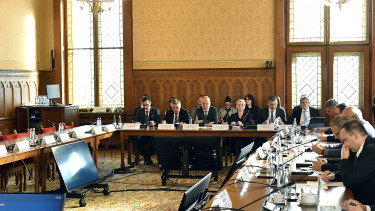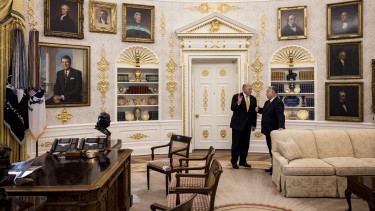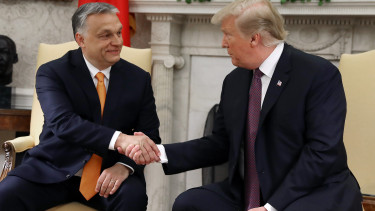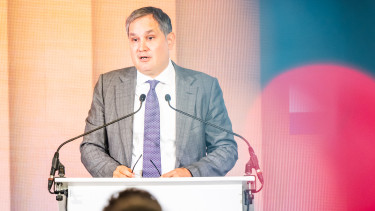The European Commission is coming out of its ivory tower and the people have woken it up to reality

The idea of asking 150 randomly selected Europeans for their views on the next EU budget cycle initially seemed more like a publicity stunt than a serious concept. Public consultations in legislative processes are usually for experts - especially on something as complex as the multiannual financial framework (MFF).
Even EU officials themselves sometimes wait months for legal clarification on what falls under EU or national competence when it comes to budget priorities.
It's no coincidence that the EU is often seen as overly bureaucratic, with unnecessarily detailed rules - such as the infamous cucumber curvature regulation, which became a running joke in Hungary. Few people know the logic behind the now-repealed 2009 rule: buyers preferred straight produce because it made packaging and logistics easier. It also had a food safety rationale, as some harmful pesticides can cause excessive curvature in cucumbers.
The EU's common budget deals with far more complex issues than the shape of a vegetable - from research funding and disaster relief to local infrastructure development. The multiannual financial framework - whose very name sounds dull and alarmingly bureaucratic - has traditionally been, quite logically, confined to closed-door negotiations in Brussels or member state ministries.
Inviting 150 citizens from across a 450-million-strong bloc to have their say on a highly technical text initially looked like a social experiment.
But the first results seem to vindicate the Commission's attempt to come out of its ivory tower.
In my experience - much to the surprise of EU officials themselves - citizens are not only willing but eager to take part in EU decision-making, no matter how technical, confusing or even boring it may seem. The latest round of citizens' panels looks promising, especially as the wider public can also take part in the process online and help shape the EU's future priorities.
Crash course followed by a forced march
The three-day event last weekend began with an introductory crash course, explaining the seemingly untouchable structure of the EU budget—agricultural subsidies, cohesion funds, and new priorities—as well as clarifying the limits of Brussels’ authority, which many politicians tend to exaggerate. Even hearing Stéphanie Riso, the Commission’s budget director-general, admit that
the EU’s common budget amounts to just over 1% of the bloc’s annual economic output
didn’t dampen the participants’ enthusiasm. If anything, it highlighted the importance of making the most of this “small budget.”

Watching the discussions unfold, it was clear that the participants quickly understood where and how they could have a say in EU affairs. They grasped the boundaries between EU and national competences. Many hadn't come out of admiration for the EU, but because they felt left out by the institutions:
they finally wanted to say what they thought and where they felt left out.
Although the selection was random, it naturally favoured citizens who were more open to EU issues, especially as the initiative received little publicity. Some were invited by Commission representatives who knocked on their doors, others by post or online. Many thought it was a joke. Notably, no outspoken Eurosceptics were present. Even the harshest critics were those who felt the EU had "lost touch with ordinary people" - and that it was high time Brussels listened.
And this time it really listened. Commission staff were present at every table, taking notes, asking questions and clearly engaging beyond polite formality.
They didn't just record ideas - they structured them and insisted that these contributions could find their way into the final proposal. Crucially, there were interpreters for every EU language, so everyone could speak in their own language.
The diversity of backgrounds was striking. A 17-year-old French student came in saying that climate change was her main concern. But after hearing from her Baltic peers about their daily sense of insecurity near the Russian border, she changed her mind: defence spending should be a priority.
At another table, a Polish pensioner described the dire state of rural infrastructure and argued that the EU should support small villages directly, bypassing what he saw as unfair national grant procedures. A Swedish woman suggested setting up pan-European pension schemes, outlining the EU's potential role as either regulator or facilitator.
Some ideas were still rough around the edges, but the Commission is taking the long view: this was only the first round.
Online consultations will resume in April, followed by another face-to-face round in Brussels in May. The ultimate goal is to produce a strong recommendation for the Commission - one that will serve as a basis for the EU's post-2028 budget.
Supported by the European Union. The opinions and statements expressed are those of the author(s) and do not necessarily reflect the official position of the European Union or the European Commission. Neither the European Union nor the European Commission can be held responsible for them.
Cover photo: Portfolio


